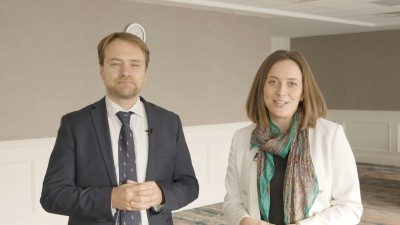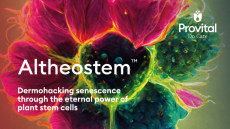Cosmetics Consultants Europe launches safety assessment training course

In the planning for some time, the CCE has worked with the RWTH Aachen University to design the largely-online training programme which consists of six modules: the European Union’s regulation on cosmetic products and their safety; toxicology 1; toxicology 2; exposure criteria/safety margins; animal testing and quality; and cosmetic products evaluation. Each training module consists of four webinars and one on-site day at the German further education academy and will be led by scientific educators from RWTH and cosmetic industry experts from across Europe.
The course – open to anyone with genuine business interest but best-suited to those with some level of background – will provide students with a scientific certificate upon successful completion. The first module starts on May 27, with registration now open.
“Modern cosmetics and their ingredients are often based on new technologies, while at the same time the knowledge of substances and products is continuously increasing due to new legal approaches and scientific methods,” CCE and RWTH International Academy said. “…The demand on knowledge and skills of product safety assessors is enormous and is constantly growing based on new scientific and regulatory results.”
Cosmetic safety within the scope of EU regulation
Dr. Annelie Struessmann, president of CCE, said the overall goal of the training programme was to enable participants to perform Safety Assessments (SAs) on cosmetic products in line with the Cosmetics Product Regulation [No. 1223/2009].
Struessmann told CosmeticsDesign-Europe that given the course was largely online, it had scope to generate global interest. She said the aim was to attract a wide calibre of students, from technical staff working in R&D to Responsible Persons (RPs) within industry or graduates in toxicology, chemistry or other sciences looking to specialise.
The RWTH International Academy was highly experienced for continued education, she said, and all trainers within the course were also internationally recognised.
Marko Gerstenkorn, business unit manager and head of part-time programs at the RWTH Aachen Academy, previously said the goal of the programme was to “set a brand-new standard of training and assessment”.
“We want to provide comprehensive content, including the theory from RWTH and the practical experience from the experts already working on that,” Gerstenkorn said.
The training programme would kickstart as planned, Struessmann said, despite the ongoing global COVID-19 crisis. Any planned on-site days would be changed to online, should official requirements make this necessary, she said.










![Chinese study highlights mental health challenges in atopic dermatitis, emphasising holistic patient care. [Getty Images]](https://www.cosmeticsdesign-europe.com/var/wrbm_gb_food_pharma/storage/images/_aliases/wrbm_tiny/publications/cosmetics/cosmeticsdesign-asia.com/headlines/formulation-science/chinese-research-linking-atopic-dermatitis-to-mental-health-underscores-need-for-holistic-care/17040623-1-eng-GB/Chinese-research-linking-atopic-dermatitis-to-mental-health-underscores-need-for-holistic-care.jpg)








